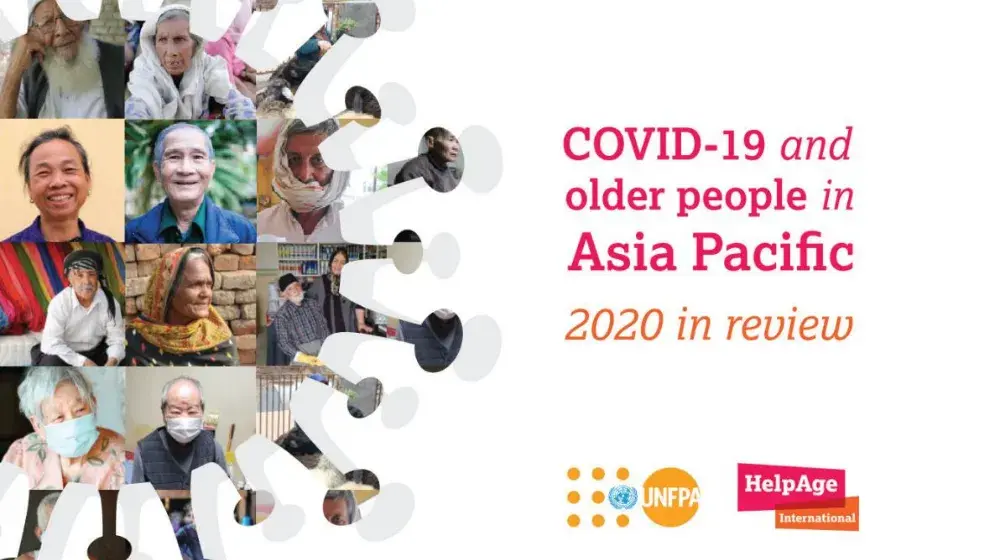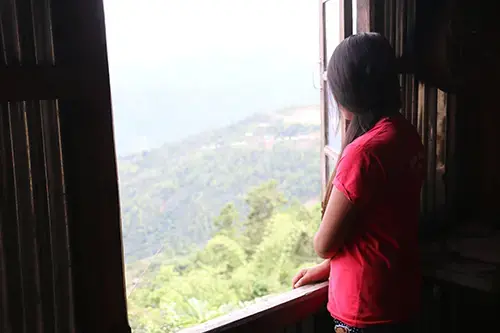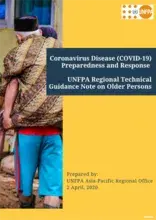Krishna Gautam is the founder of the charity Ageing Nepal.
Why and how did you start Ageing Nepal?
A year after my mother’s death in 2003, my father began to age rapidly – becoming forgetful, mixing words up and losing the ability to wash, dress himself and do basic day-to-day things. Over the next year his confusion slowly increased.
Some of our family’s nearest and dearest advised us to just accept this as the ‘normal eccentricities’ of old age, and others urged us to hush it all up and keep his creeping dementia a secret.
It was hard. He was my dad and I was his eldest son. I had a wife and son of my own, but I felt it was my duty to quit my job and take care of him full time. By then it was 2006 and I was sure my father had gone completely mad.
It was only when I took him to hospital with a fever one day that I heard the words ‘incurable dementia’ for the first time. After consulting with a psychologist, a doctor prescribed a number of medicines for him. Getting him to take them was a herculean task, and despite these efforts we saw no improvement. In fact, he got worse. I had lost the father I knew.
Back when my father was fine I worked in rural development planning in Nepal, so when he became ill it was natural for me to take my personal situation and think about it on a broader, national scale.
After looking into dementia and other issues surrounding ageing in Nepal I was shocked by the total lack of awareness in society surrounding dementia -- the social attitudes towards it, the lack of services and products to help with care-giving and the lack of literature and solid scientific data. Society’s complete ignorance increased the suffering of the afflicted and those trying to help them.
I became worried about the future for my children and myself, so I decided to dedicate my time to filling the gaps so others would hopefully suffer less due to dementia in the future.
The first thing I did was to set up a care home – the ‘Geriatric Center Nepal’ - in 2009 with some like-minded friends. The home had live in dementia patients and carried out research and training to help develop policies and programmes.
I also produced over a dozen publications in Nepali to raise awareness on issues surrounding an ageing population and mental health, and also to create a demand for services. But I had to close the Center after two years because I simply couldn’t afford it anymore. Funding from the government or other sources wasn’t forthcoming.
My father died in 2012 at the age of 84. But I felt I simply had to renew my efforts. So I founded a new organization called ‘Ageing Nepal’ in 2011, with low operating costs and a focus on building up a knowledge base via a network of experts through research and training. Thankfully, it’s still operating today.
What is the current scenario in Nepal regarding older persons in terms of their overall well-being, government policies that focus on their needs and family and wider societal support and attitudes towards them?
There are nearly 26.5 million people in Nepal, and just over 8 per cent over are over 60 years of age. The number of older persons is growing more than twice as fast as the overall population. The number of dependent elderly is also increasing year on year and an estimated 78,000 people are living with some form of dementia across the country.
The majority of Nepal’s older persons live in the countryside. Many are illiterate and are involved in raising children and day-to-day housework. In Nepal, the concept of social security is relatively new. There is no concept of a retirement age in the private sector either.
Traditionally sons care for the elderly. But that’s changing these days, and many older people are left to care for themselves. Nepal has come up with many plans and policies regarding ageing over the past two decades, but implementation has been patchy.
The government has set up a ‘senior citizen unit,’ but it is understaffed and underfunded. There are also geriatric wards in all of the seven regional hospitals, which is a big step forward, but again, they need more investment, better equipment and better-trained staff.
Nowadays there is also one residential facility especially for Alzheimer’s patients. It’s run by the private sector but the services, being provided by staff that lack formal training, remain too expensive for most people to afford.
NGOs are more active in terms of training caregivers, running awareness raising programmes and providing support to care homes and day care centers.
Overall, I think it’s fair to say that issues related to ageing are a peripheral and not a priority in Nepal.
Beyond your own family, can you recount one particular story that brings home the issue of older persons in Nepal?
There was a well-to-do family in Kathmandu that I knew. The chief, as we call the head of the household in our culture, was a retired engineer. He was about 68 years old when I met him. His wife was considerably younger than him. Their two sons lived with them and they were both very highly educated, holding very high government jobs. The old man was well-travelled and had held top positions in many government organizations.
The old man began visiting my office soon after I opened the Geriatric Center Nepal. He would spend hours there, recounting his achievements and trying hard to amuse us with jokes and stories. Perhaps he feared we would ask him to stop visiting, and he would end up stuck at home, lonely.
After I started Ageing Nepal in 2011, his visits became more frequent and lasted even longer. He had an unspoken problem of loneliness, because his family members were out all day, at work, school or with friends. So in a way, he saw my office as a “day care center” for himself.
After I lost my father, I started to see him as a father figure, taking him on evening walks where we would hold hands. This almost became a habit.
Over months, his visits to my office became less and less frequent, so I took the time to visit him at home some evenings. When I visited him at his home, I saw reasons to guess that he had become incontinent, but when I asked his wife, she denied it, saying everything was okay with him. I saw clear signs of dementia, but his wife still insisted all was well.
Soon after I noticed that the family was less friendly and welcoming to me. I talked with him about encroaching dementia, but he too denied it.
I tried to discuss the issue of dementia with his family, including its symptoms and consequences, but they just kept assuring me that the old man was fine. I knew he wasn’t.
A little later, his family said he was in hospital for some common health problem or other. But I just knew they weren’t telling the truth. They wanted to keep the dementia as their family secret.
Every evening I went to the gate of the house and asked when he would return from the hospital. Over and over again, I was given the same answer - that he was getting better and would be back soon.
Until they told me he had died in hospital, “because the nurse gave him medicine that accidently killed him.” The point is, they hid the truth, and doubtless they all suffered more for it, especially him. Perhaps he would have lived longer, and they would have felt less shame if they had been open and asked for help.
I think the main lesson from this is that dementia doesn’t actually kill people, but ignorance, stigma and discrimination do. Also, loneliness encourages dementia, and dementia itself causes such unbearable pain to all around that the helpless family member may start wishing for death to bring an end to the suffering of his loved ones and all in the family.
We are in the age of the 2030 Sustainable Development Agenda and its pledge "to leave no one behind." In your opinion, what does Nepal have to do -- both the Government and society at large -- to ensure this pledge is fulfilled, when it comes to older persons?
In Nepal, I would like to see the government come up with new policies, programmes and legal instruments for taking action on ageing into all walks of life in society, be it health or soil conservation, agriculture or infrastructure development, politics or culture and so on. The policies should be underpinned by human rights.
The government should also promote social and private sector investment in the ageing sector which has not yet become the subject of social discourse. The role of the social and private sectors would be to increase investment guided by the growing opportunities to invest in the ageing sector.
We need mass awareness-raising campaigns also. This is really the first step, in which government, business and civil society should all work together taking a leading role, building on each of their unique strengths.
I’d just like to say also, that for the world, not just Nepal, putting action on ageing in front and centre – across the whole of government and civil society - is vital to ensure the security and quality of life we, and our children, will need one day. We will all grow old, but we can prepare better for it.





